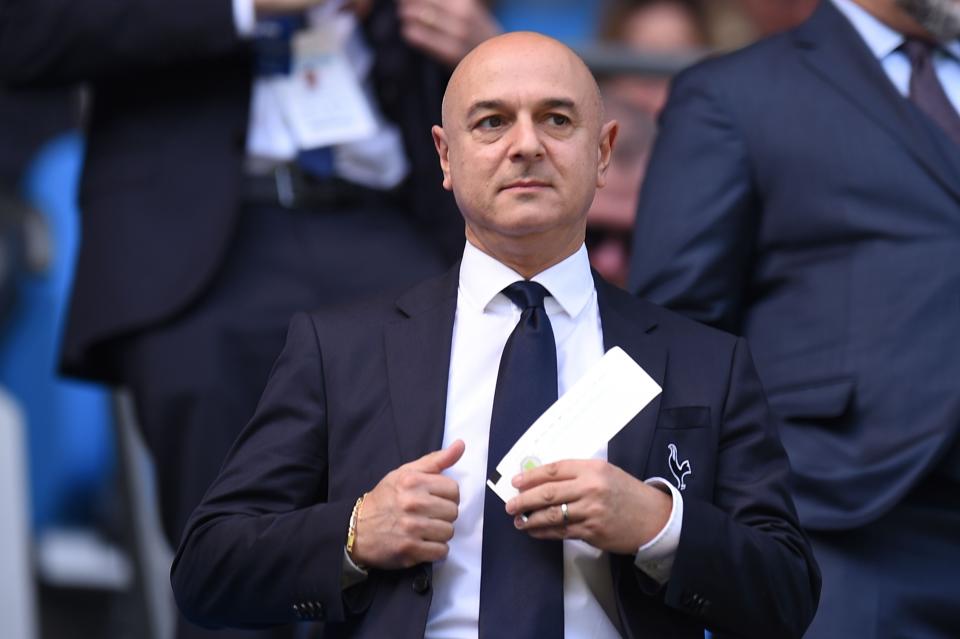The bearable lightness of being Tottenham Hotspur

In all likelihood, all rational reading of the forces at play, there won’t be a recurrence here.
Tottenham Hotspur won’t do what it did in this season’s run to the Champions League final again. Not when circumstance had them dead to rights after the first half of the group stage, and once more in the quarterfinals against mighty Manchester City, and one last time in the second half of the second leg of the semifinals vs. Ajax.
Any club would have a small chance of repeating such magic. And for a club like Spurs, which is to say, specifically like Spurs? All the more miniscule.
That’s not to say it’s in the club’s nature to fail. Tottenham has been punching above its weight for a decade now, and probably longer. The issue is overachievement implies limitation, a plane of existence in which Tottenham seems to remain.
The club conspires against itself in this regard. There’s no disputing Spurs has been fiscally responsible. Another way of saying that is Spurs doesn’t dare threaten to imbalance the check book. That’s a tough ethos to follow when the rest of the Premier League’s upper-crust clubs are spending like wildfire. It’s hard to change your place in the grand scheme when there’s no grand scheme to change your place.
Still, Tottenham has only missed European football once in the past 14 seasons. It does spend smartly and develop young players better than most other clubs. That will lead to intermittent achievement, which can’t exclusively be measured in silverware, because any argument that this season’s Champions League campaign was a failure is shot down by the arrows of honest assessment.
It was an incredible accomplishment to reach Europe’s biggest final after going two straight transfer windows, 115 days’ worth of opportunity, without signing any new players to nudge a very good side into greatness. It was the uncanny work of a manager who might soon find work elsewhere.

Here’s where the conflict is centralized. For all his brilliance, Mauricio Pochettino has gone about as far as he can reasonably go in North London. Since arriving from Southampton – a conveyor belt of talent more prolific than Tottenham – Pochettino has grown to become one of the game’s elite bosses, and elite bosses almost exclusively want the confirmation that accompanies trophies, no matter what satisfaction they get from helping players blossom into their full potential.
So Spurs chairman Daniel Levy has a clear and present decision to make. Does he sanction the outlay necessary to entice Pochettino to stick around, or does he go hunting for the next Pochettino, armed with a club profile Pochettino helped elevate?
The answer, incongruously enough, might be informed by what’s happened at Tottenham’s blood rival. Arsenal earned a great deal of success around the turn of the century through smart spending and player development, which helped engineer construction of a shimmering new home ground much like Tottenham Hotspur Stadium, which opened its doors two months ago. Arsenal embraced frugality as it paid off massive stadium debts, which resulted in a fall from previous graces but maintained its status as one of the most valuable clubs in the world.
But Arsenal was also guided by a manager in Arsene Wenger who staked his reputation on doing a lot without necessarily having a lot. That’s Pochettino. That’s the kind of manager Spurs needs to convince to stay around.
So the aim twists itself into a Möbius strip: Tottenham needs Pochettino to live beyond its means, but must live beyond its means to keep Pochettino.
And change is inevitable, even if Tottenham does keep Pochettino. The 47-year-old Argentine has never managed a club with genuine expectation before. Overthrowing Arsenal, which he’s done in spectacular fashion, will no longer be enough. Annual retainment of Champions League soccer won’t be enough. There’s no longer an absence of burden.
Or maybe there is. Maybe everyone invested in Spurs, from the owners to the coaches to the players to the fans, is aware of their place. Not in terms of social class, but rather speciality. It’s very easy to say only the richest clubs win consistently, and much harder to recognize that saying so is more depreciative than it is discerning.
Rare is the chance for a club to define its meaning, and even more rare is for such definition to take shape. Tottenham Hotspur is a well-run club that has survived crossroads before, and it will survive them again.
This one is heavy only inasmuch as it decides which set of problems Tottenham wants to have.
More from Yahoo Sports:

